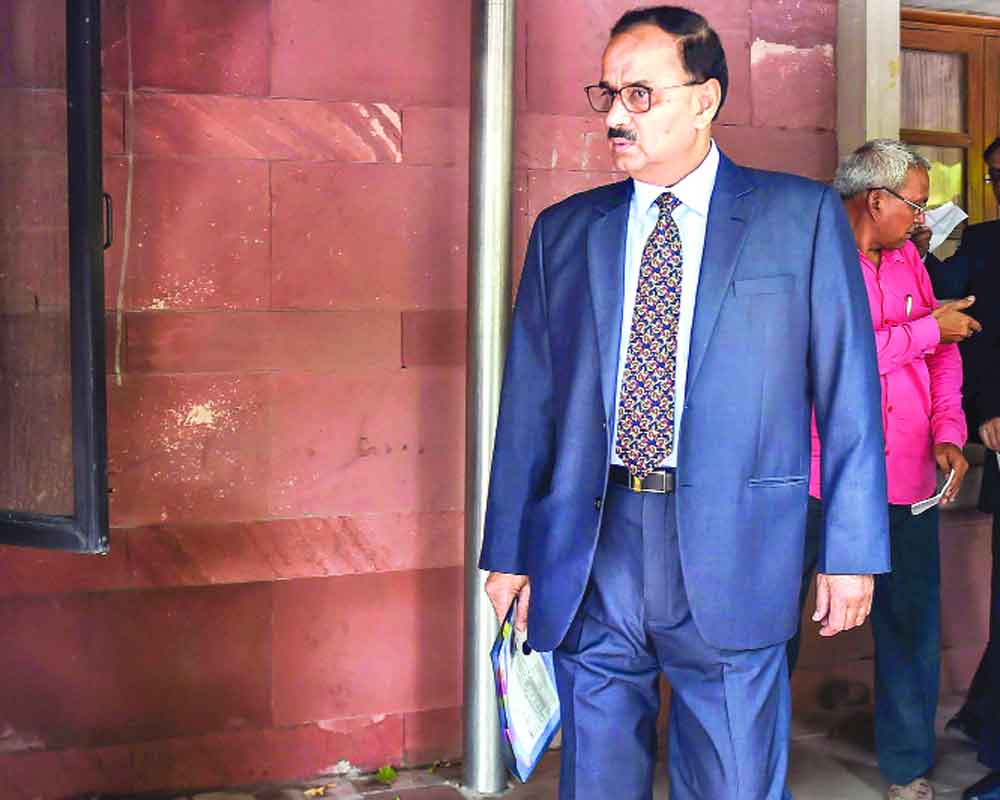In a major rebuff to the Centre and Central Vigilance Commission, the Supreme Court on Sunday reinstated Alok Verma to the post of CBI Director by setting aside their orders sending him on leave.
However, the court made it clear that on reinstatement, Verma will cease and desist from taking any major policy decisions till the Selection Committee’s decision. Verma’s two-year tenure as CBI Director ends on January 31.
On the issue of “divestment of power and authority” of Verma, the apex court said it is “still open” for the high-powered committee, which selects the CBI chief, to consider the matter within a week since the CVC is probing the charges of corruption against him.
The high-powered committee includes the Prime Minister, the Chief Justice of India (CJI), and the Leader of Opposition.
“We deem it proper to direct that Verma, Director CBI, upon reinstatement, will cease and desist from taking any major policy decisions till the decision of the committee permitting such actions and decisions becomes available within the time frame indicated,” a Bench headed by the CJI said in its 44-page order.
The Bench also comprised Justices SK Kaul and KM Joseph. The judgment was penned by CJI Ranjan Gogoi. However, the CJI didn’t attend court and it was pronounced by Justice Kaul.
By its Tuesday’s order, the SC set aside the October 23, 2018, orders of the CVC and the Department of Personnel and Training that divested Verma of his powers and appointed CBI’s Joint Director M Nageshwar Rao to look after the duties and functions of the agency’s director.
Verma and Special Director Asthana were sent on “leave” after corruption charges were leveled against each other and the CBI filed a FIR against Asthana. While Verma had moved the apex court against the Government’s orders, Asthana has not sought any relief from the SC but has moved the Delhi High Court for quashing of FIR against him in a corruption case.
The SC referred to its verdict in the Vineet Narain case and subsequent amendment in law to drive home the point that legislative intent has been to ensure “complete insulation of the office of the CBI Director from all kinds of extraneous influences, as may be, as well as for upholding the integrity and independence of the institution of the CBI as a whole”.
The 1997 Vineet judgment relates to investigation of allegations of corruption against high-ranking public officials. The top court referred to a provision of the Delhi Special Police Establishment (DSPE) Act, which said the CBI Director cannot be transferred without the consent of the Selection Committee.
“If the word ‘transferred’ has to be understood in its ordinary parlance and limited to a change from one post to another, as the word would normally convey and on that basis the requirement of ‘previous consent of the committee’ is understood to be only in such cases, i.e. Purely of transfer, such an interpretation would be self-defeating and would clearly negate the legislative intent,” the Bench said.
It said the institution of CBI has been perceived to be necessarily kept away from all kinds of extraneous influences so that it can perform its role as premier investigating and prosecuting agency “without any fear and favour and in the best public interest”.
“The head of the institution, the director, therefore, has to be the role model of independence and integrity which can only be ensured by freedom from all kinds of control and interference except to the extent that Parliament may have intended,” it said.
The Bench said all authorities should be kept away from “intermingling or interfering” in the functioning of the CBI director.
Dealing with the situation where authorities may require to take action against CBI director, the Bench said public interest must be writ large against the backdrop of the necessity and such a “compelling necessity can only be tested by the opinion of the committee”.
The court also noted that the relevant law did not have any provision with regard to interim suspension or removal of the CBI director and made clear that any such decision has to be taken after taking consent of the high-powered selection panel.
The apex court noted that the CBI has grown over the years in its role, power and importance and today it has become the premier investigative and prosecution agency of the country.
“The high stature and the pre-eminent position that the institution has acquired is largely on account of a strong perception of the necessity of having such a premier agency,” it said.


























